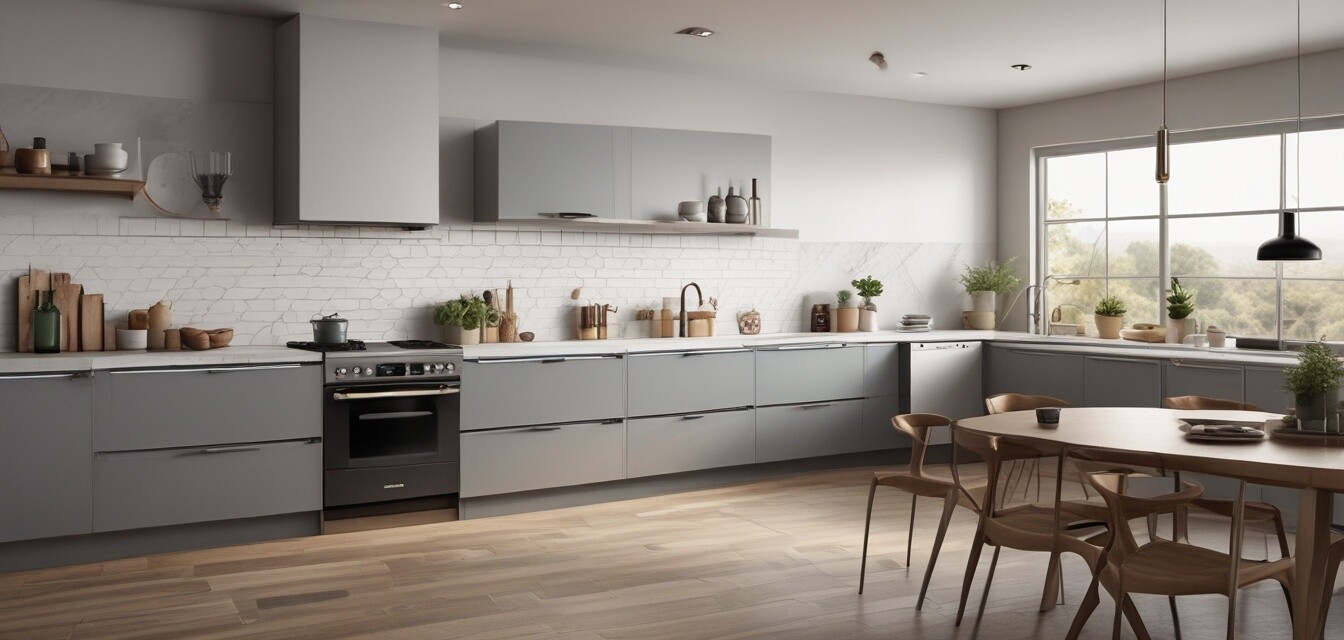
The Role of Smart Kitchens in Sustainable Living
Key Takeaways
- Smart kitchens utilize advanced technology to reduce waste and energy consumption.
- Efficient appliances lead to significant cost savings and lower environmental impact.
- Integrating smart technology can simplify meal planning and food preservation, contributing to less food waste.
As the world becomes more conscious of environmental issues, the demand for sustainable living practices has grown tremendously. A significant part of this shift towards a sustainable lifestyle lies in our kitchens. Smart kitchens revolutionize how we approach cooking and food management, pushing the boundaries of convenience while also contributing to eco-friendly practices. In this article, we will explore how the integration of intelligent kitchen technologies can lead to more sustainable living practices and a green cooking experience.
What Makes a Kitchen Smart?
A smart kitchen is defined by the use of interconnected devices that communicate with one another, providing improved control and functionality. These technologies help homeowners save time, reduce energy, and manage resources efficiently. Below are some common features of smart kitchens:
- Smart appliances that optimize energy consumption.
- Touchless faucets that conserve water.
- Bluetooth-enabled devices for easy control and monitoring.
- Smart lighting systems that adjust based on use.
The Environmental Benefits of Smart Kitchens
Implementing smart technologies in your kitchen can have several positive impacts on the environment:
1. Energy Efficiency
Modern appliances are designed to use energy more efficiently than traditional models. Energy-efficient appliances reduce overall electricity consumption and, as a result, lower greenhouse gas emissions.
2. Water Conservation
Smart faucets equipped with sensors limit water usage, ensuring that water is only used when necessary. This can significantly reduce water waste commonly associated with traditional tap systems.
3. Waste Reduction
Smart refrigerators and food management apps help monitor food freshness, encouraging users to consume products before they expire, which leads to less food waste.
4. Sustainable Sourcing
Some smart kitchen devices come with features that allow users to track the sustainability of their ingredients, encouraging eco-friendly purchasing habits.
Smart Kitchen Technologies Shaping Sustainability
Let’s delve deeper into some key smart kitchen technologies that are making a difference:
| Technology | Functionality | Benefit |
|---|---|---|
| Smart Ovens | Automatically adjust cooking times and temperatures based on the type of food. | Reduces energy usage during cooking. |
| Smart Refrigerators | Track food inventory, allow remote access, and manage expiration dates. | Minimize food waste and optimize shopping. |
| Touchless Faucets | Activate water flow with a simple hand gesture. | Conserve water and promote hygiene. |
| Smart Lighting | Adjusts brightness and color based on activity and time of day. | Lower energy consumption and enhance mood. |
How to Transition to a Smart Kitchen
If you're looking to make your kitchen smarter and more sustainable, here are some actionable tips:
Beginners Section
- Start by replacing outdated appliances with energy-efficient models.
- Install smart devices like thermostats and lighting that optimize energy use.
- Incorporate apps that help track pantry items and reduce food waste.
- Consider touchless faucets that can significantly improve water efficiency.
- Research smart appliances and brands that focus on sustainability.
The Future of Smart Kitchens
The future of smart kitchens is quite promising as technology continues to evolve. Innovations such as AI-driven appliances that learn and adapt to user preferences will become commonplace. Moreover, increased integration with renewable energy sources, such as solar-powered appliances, will further enhance the sustainability aspect of smart kitchens.
Conclusion
In conclusion, the integration of smart technologies in kitchens not only provides convenience but also plays a crucial role in promoting sustainable living. By utilizing energy-efficient appliances, reducing waste, and conserving resources, smart kitchens can serve as a model for modern sustainability practices. Whether you're a cooking enthusiast or looking to make your home more eco-friendly, adopting smart kitchen technologies is a step towards a greener planet.
Pros
- Enhanced energy efficiency reduces utility bills.
- Touchless devices increase hygiene.
- Smart technology helps manage food waste effectively.
- Customizability enhances user experience.
Cons
- Initial costs can be high for smart appliances.
- Dependence on technology may be a drawback for some users.
- Incompatibility issues can arise with different brands.
To learn more about sustainable kitchen practices and technological advancements, check out our Kitchen Technology News section for the latest updates. Additionally, for guidance on eco-friendly products, visit our Touchless Faucets and Smart Ovens pages.